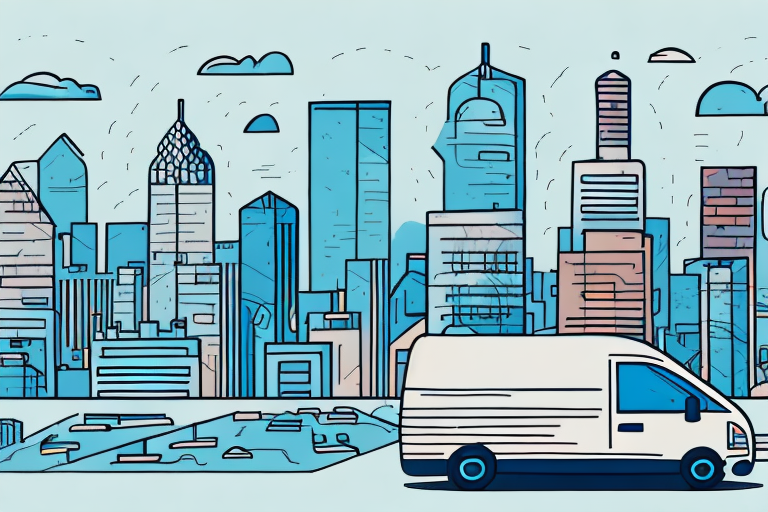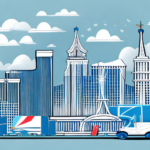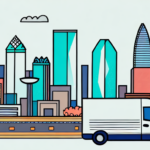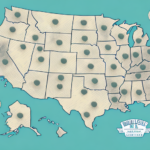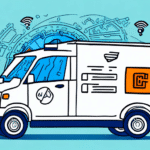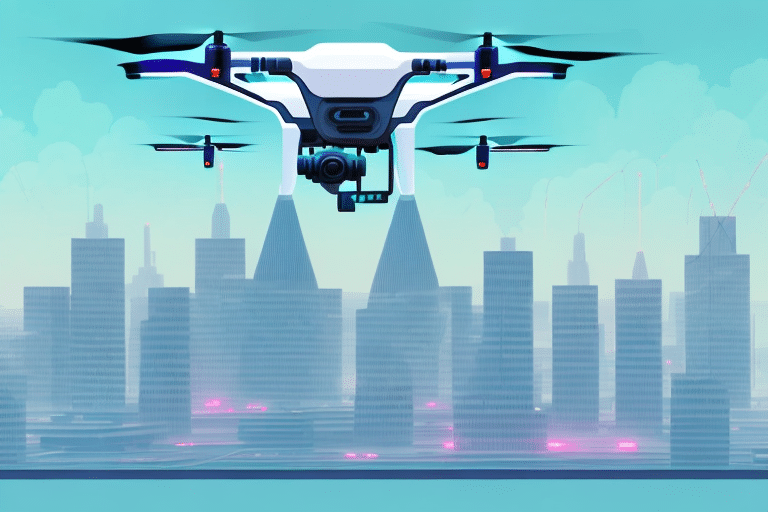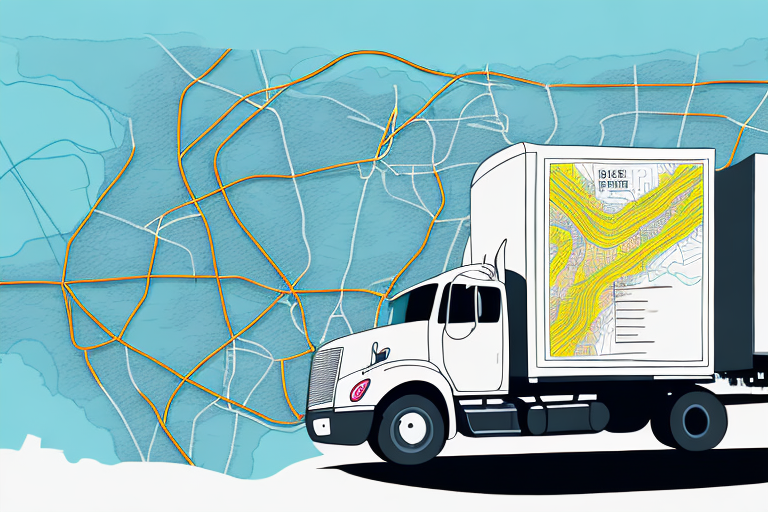Why Delivery Driver Jobs are in High Demand Today
The demand for delivery driver jobs has surged in recent years, primarily driven by the exponential growth of e-commerce. According to the U.S. Department of Commerce, online retail sales are expected to reach over $1 trillion by 2023, significantly increasing the need for efficient delivery services. Additionally, the COVID-19 pandemic accelerated the shift towards online shopping and contactless deliveries, further boosting the demand for delivery drivers.
Moreover, the expansion of the food delivery sector has contributed significantly to this trend. Platforms like DoorDash and Uber Eats have seen a substantial rise in user base, necessitating a larger workforce of delivery drivers to meet the growing demand.
The gig economy also plays a pivotal role in this increased demand. Many individuals are seeking flexible employment opportunities, and delivery driving offers the perfect balance of flexibility and earning potential. This trend is anticipated to continue as more people opt for gig-based roles over traditional employment structures.
The Growth of the Delivery Industry and the Opportunities it Offers
The delivery industry is experiencing rapid growth, with significant opportunities emerging for delivery drivers. According to a report by Grand View Research, the global courier, express, and parcel (CEP) market is projected to reach $464.06 billion by 2027, expanding at a CAGR of 6.1% from 2020 to 2027. This growth is fueled by the continuous rise in online shopping and the need for efficient last-mile delivery services.
Last-Mile Delivery Opportunities
Last-mile delivery, which refers to the final step of the delivery process from a distribution center to the end customer, is a critical component of the delivery industry. Companies are constantly seeking innovative solutions to optimize this segment, leading to numerous job opportunities for delivery drivers who can ensure timely and accurate deliveries.
Technological Innovations
The delivery industry is not just growing in size but also evolving in complexity thanks to technological advancements. Innovations such as drones, autonomous vehicles, and advanced logistics software are transforming how deliveries are managed and executed. This technological shift opens doors for individuals with technical skills to engage in roles that support and maintain these new delivery technologies.
For further insights, refer to the McKinsey & Company report on last-mile delivery.
How to Get Started in a Delivery Driver Career: Tips and Tricks
Essential Requirements
- Valid Driver’s License: A clean and valid driver’s license is mandatory.
- Background Check: Most companies require a thorough background check and drug screening.
- Vehicle: Depending on the job, you may need your own vehicle or the company may provide one.
Choosing the Right Company
Research and apply to companies that align with your career goals and offer the benefits you seek. Consider factors such as pay rates, flexibility, and the type of deliveries they handle.
Safety and Training
Prioritize safety by adhering to traffic laws and company policies. Utilize training resources provided by employers to enhance your driving and package handling skills.
The Skills You Need to Succeed as a Delivery Driver
- Time Management: Efficiently managing your schedule to maximize delivery efficiency.
- Attention to Detail: Ensuring packages are handled correctly and delivered to the right recipient.
- Effective Communication: Interacting professionally with customers and team members.
- Technological Proficiency: Utilizing delivery apps and GPS navigation systems effectively.
- Physical Stamina: Ability to handle the physical demands of loading and unloading packages.
Possessing these skills not only enhances your performance but also increases your potential for higher earnings and career advancement.
The Different Types of Delivery Driver Jobs Available Today
Food Delivery
Companies like Grubhub, DoorDash, and Uber Eats offer opportunities for individuals seeking part-time or flexible work schedules in the food delivery sector.
Courier Services
Established courier companies such as FedEx and UPS provide delivery driver positions that often come with better pay, benefits, and opportunities for career growth.
Logistics and Specialized Deliveries
Logistics firms offer roles that may require a commercial driver’s license (CDL) and involve the transportation of specialized goods, including medical equipment and hazardous materials. These positions often require additional training and certifications.
The Pros and Cons of Being a Freelance Delivery Driver
Pros
- Flexibility: Choose your own hours and work as much or as little as you desire.
- Independence: Operate as your own boss without the constraints of traditional employment.
Cons
- Income Instability: Earnings can fluctuate based on demand and available deliveries.
- No Benefits: Freelancers typically do not receive benefits such as health insurance or retirement plans.
- Personal Expenses: Responsible for covering vehicle maintenance, fuel, and other work-related costs.
The Benefits of Working for a Large Delivery Corporation
Joining a large delivery corporation offers several advantages:
- Job Security: Established companies provide more stable employment opportunities.
- Competitive Pay and Benefits: Access to health insurance, retirement plans, and other benefits.
- Career Advancement: Opportunities to move into higher positions within the company, such as logistics planning or management roles.
- Training and Development: Comprehensive training programs to enhance skills and performance.
Companies like Amazon and DoorDash are known for providing robust support and benefits to their delivery drivers.
How to Maximize Your Earnings as a Delivery Driver
Optimize Your Routes
Use GPS and route optimization tools to plan the most efficient paths, reducing time and fuel costs. Delivering in densely populated areas can increase the number of deliveries per hour.
Leverage Surge Pricing
Take advantage of peak times, such as holidays or rush hours, when delivery apps offer higher pay rates to meet increased demand.
Enhance Customer Service
Providing excellent service can lead to higher tips and better ratings, which may result in more delivery opportunities.
Track Expenses
Keep detailed records of all work-related expenses, such as fuel, maintenance, and vehicle depreciation, to maximize your tax deductions and net earnings.
How Technology is Affecting the Delivery Industry and What it Means for Drivers
Technological advancements are revolutionizing the delivery industry, bringing both opportunities and challenges for delivery drivers.
Automation and AI
Automation tools and artificial intelligence are streamlining route planning and package tracking, making deliveries more efficient. However, this shift may reduce the demand for traditional driving roles as autonomous vehicles become more prevalent.
Real-Time Tracking
Modern delivery systems allow customers to track their packages in real-time, enhancing transparency and customer satisfaction. Drivers benefit from optimized routes and reduced instances of lost parcels.
Data Security
With increased reliance on technology, data security has become paramount. Delivery companies must implement robust security measures to protect customer information and prevent cyber threats.
Continuous learning and adaptation to new technologies are essential for drivers to remain competitive in this evolving landscape.
The Future of the Delivery Industry: Trends and Predictions
The delivery industry is poised for significant transformation in the coming years. Key trends and predictions include:
- Autonomous Vehicles: Self-driving delivery trucks and drones will likely become commonplace, enhancing efficiency and reducing operational costs.
- Green Deliveries: An increased focus on sustainability will drive the adoption of electric vehicles and eco-friendly delivery practices.
- Customization: Personalized delivery options, such as scheduled deliveries and specific time slots, will become standard offerings to meet diverse customer needs.
- Integration with Smart Homes: Deliveries will become more integrated with smart home systems, allowing for seamless package reception and storage.
Staying informed about these trends will help delivery drivers adapt and leverage new opportunities as the industry evolves.
How COVID-19 has Affected the Demand for Delivery Drivers
The COVID-19 pandemic has had a profound impact on the delivery industry. Key effects include:
- Increased Demand: Lockdowns and social distancing measures led to a surge in online shopping and home deliveries, driving up the need for delivery drivers.
- Shift to Contactless Delivery: To minimize virus transmission, many companies implemented contactless delivery options, which require reliable and efficient drivers.
- Safe Work Practices: Enhanced safety protocols, such as sanitizing vehicles and providing personal protective equipment (PPE), became standard to protect both drivers and customers.
- Long-Term Changes: The pandemic has accelerated the adoption of digital and delivery services, suggesting that the increased demand for delivery drivers may continue even post-pandemic.
As the industry adapts to these changes, delivery drivers play a crucial role in maintaining essential services and supporting the evolving needs of consumers.
Delivery driver jobs offer a range of benefits, from flexible working hours to opportunities for career growth. However, it's important to consider various factors, such as job security and salary, when choosing your career path. By staying updated with the latest trends and technologies, acquiring relevant skills, and providing excellent customer service, delivery drivers can enjoy a long and successful career in this industry.













